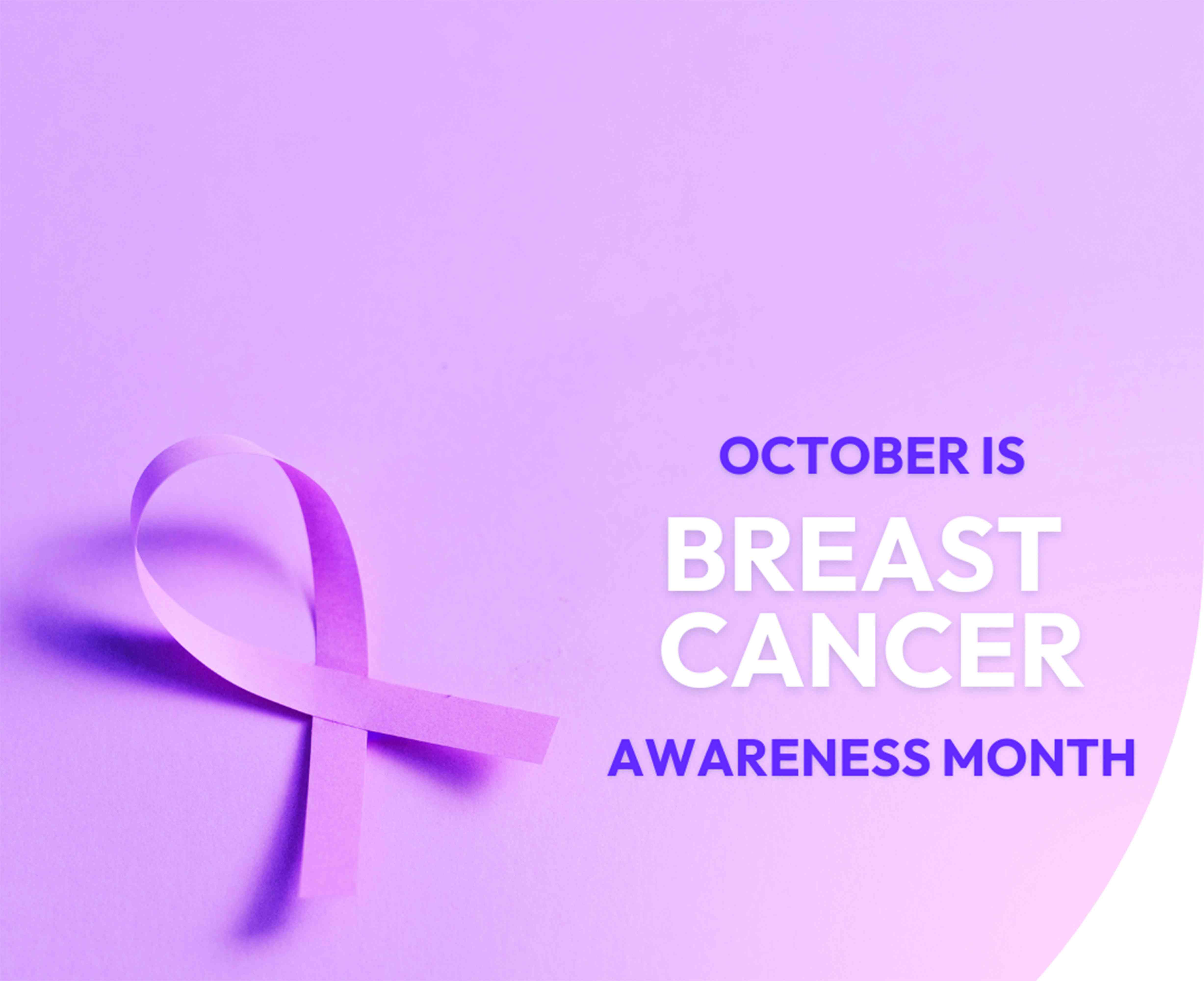
BREAST cancer remains one of the most pressing health challenges facing women globally and Zimbabwe is no exception.
As October marks World Breast Cancer Awareness Month, the country joins the international community in raising awareness, promoting early detection and supporting those affected by the disease.
This year’s theme, “Every Story is Unique, Every Journey Matters,” resonates deeply across Zimbabwe, where the fight against breast cancer is shaped by unique cultural, economic and healthcare realities.
World Breast Cancer Awareness Month is a global campaign to raise awareness about breast cancer, encourage access to screening and diagnostic services, reduce barriers to timely diagnosis and treatment, support those living with breast cancer, and mobilise advocacy, resources and partnerships in cancer control.
Each breast cancer diagnosis is deeply personal. Behind it lies an individual story, one of strength, perseverance and hope.
The theme emphasises that breast cancer affects women and their families in unique ways across the world, and that every journey is worthy of empathy, respect and support.
In Zimbabwe, the theme strikes a particularly powerful chord. Many women face significant challenges in accessing timely diagnosis, treatment and support.
“Our overall journey as a country is also different from other countries where financial resources are abundant and there are different attitudes and cultures surrounding screening and diagnosis of cancers,” said Nicola Misi, head of Cimas iGo.
“This theme is a reminder that survivors, caregivers and advocates in Zimbabwe have powerful stories to share. These stories can inspire others and personalize the fight against breast cancer despite the challenges.
“Behind every statistic is a real person with unique hopes, struggles and motivations. All journeys matter and should be considered as we make commitments to supporting those affected and allocating resources for screening and care,” she added.
Globally, the goals of Breast Cancer Awareness Month include increasing awareness of breast cancer risk factors and symptoms, promoting screening and diagnostic uptake, advocating for better access to quality cancer care, mobilising funding and policy commitment and reducing morbidity and mortality through earlier detection and improved care.
Locally, Zimbabwe’s goals are tailored to its specific context. These include boosting community-level awareness so women recognise early warning signs and attend regular screening programmes, expanding access to clinical breast exams, mammography, ultrasound and pathology services.
Others include reducing delays in diagnosis by strengthening referral pathways, advocating for more resources in the healthcare sector and expanding psychosocial support and survivorship programmes.
“We must engage communities to reduce stigma and encourage health-seeking behaviours,” Misi emphasised.
“Cimas is rolling out a breast cancer awareness and screening campaign this October. Members of the medical aid group are being invited to visit facilities and get screened.
“We shall be hosting various awareness sessions where we shall be educating communities on all aspects of breast cancer education including self-examination, screening protocols, risk factors and where to get services.
“Our campaign also includes reaching out to those affected and offering sympathy and support through donations and visits to those who require them,” she added.
Other organisations, such as the Cancer Association of Zimbabwe (CAZ), are also actively involved. CAZ regularly conducts awareness, outreach and screening campaigns through its network, and many healthcare providers offer free or subsidised screening during October to encourage participation.
Breast cancer risk factors include genetic mutations, family history of breast or ovarian cancer, hormonal factors, reproductive history, dense breast tissue, high alcohol consumption, obesity, especially after menopause, physical inactivity, radiation exposure and certain benign breast conditions.
“It is important to note that having one or more risk factors does not mean a woman will definitely develop breast cancer. Many women with breast cancer have none of the classic risk factors,” Misi explained.
In Zimbabwe, additional contextual factors influence risk.
Late diagnosis and advanced disease at presentation are common due to awareness gaps, socioeconomic barriers and limited health system capacity.
Family history is one of the strongest known risk factors. If a first-degree relative had breast cancer, the risk is elevated, especially when multiple relatives are affected, the diagnosis occurred at a young age, or there is a known genetic mutation. However, most breast cancer cases do not have a strong family history or identifiable genetic mutation.
Lifestyle factors can help reduce risk. Maintaining a healthy body weight, regular physical activity, a balanced diet, limiting alcohol intake, avoiding tobacco, encouraging breastfeeding and minimising unnecessary hormonal exposures are all recommended.
“These healthy habits also help reduce the risk of other diseases such as cardiovascular conditions and diabetes,” Misi said. In terms of geographic disparities, breast cancer detection rates are generally higher in urban areas due to better health infrastructure and awareness. In Zimbabwe, specialised oncology services are concentrated in cities such as Harare and Bulawayo, creating barriers for rural populations.
“Because of under-diagnosis, rural cases may be undercounted and rural women often present at more advanced stages,” Dr Misi noted.
Early warning signs include a new lump or mass in the breast or underarm, thickening or swelling, skin dimpling, nipple retraction, discharge, redness or scaling, changes in breast shape or size, and pain. Prompt medical evaluation is essential if any of these symptoms are noticed.
Screening recommendations vary, but in Zimbabwe, women are encouraged to begin self-examinations from age 25 and undergo annual clinical exams and mammograms from age 40.
For those at higher risk, earlier or more frequent screening may be warranted.
Available screening methods include breast self-examination, clinical breast examination, mammography (mostly in urban centres), ultrasound, pathology or biopsy and advanced imaging like MRI (less common due to cost).
Emphasis is placed on awareness and prompt referral of symptomatic cases. Diagnostic services are accessible through specialised oncology and radiotherapy centres in Harare and Bulawayo. However, challenges persist. These include lack of awareness, geographic and financial barriers, stigma, poor follow-up and treatment adherence issues.
“These challenges contribute to late-stage presentation and lower survival rates,” Misi said.
Treatment options in Zimbabwe mirror global standards but are adapted to resource constraints. They include surgery, chemotherapy, radiotherapy, hormone therapy, targeted therapy, supportive care and psychosocial support.
Chemotherapy is a cornerstone of treatment and can significantly improve survival, especially in aggressive or node-positive disease. Its effectiveness depends on cancer subtype, stage at diagnosis, patient health and access to quality drugs and supportive care.
Emerging treatments such as HER2 inhibitors and immunotherapy are available in some private or referral centres. Innovations in care delivery, including telemedicine and streamlined diagnostic pathways, are being explored.
Misi noted that communities play a vital role in reducing stigma by encouraging open discussion, sharing survivor stories, hosting outreach events, engaging local leaders and dispelling myths.
She said individuals can reduce their risk by staying physically active, maintaining a healthy weight, eating a balanced diet, limiting alcohol, avoiding unnecessary hormone therapy, breastfeeding, knowing their family history, practicing breast self-awareness, attending regular check-ups and advocating for screening.
Misi also highlighted that the WHO’s Global Breast Cancer Initiative (GBCI) aims to reduce global breast cancer mortality by promoting early detection, diagnosis and equitable access to management.
“In Zimbabwe, this means adopting resource-stratified guidelines, strengthening health system capacity, fostering partnerships, ensuring equity, and integrating breast cancer control into national planning,” she added International strategies to improve survival in low-resource settings, Dr Misi said, include promoting early detection, task-shifting, strengthening diagnostics, improving referral systems, subsidising essential medicines, ensuring coordinated care, using cost-effective regimens, and leveraging telemedicine.
She added that men also have a role to play. They can educate themselves and others, encourage screening, participate in campaigns, support patients emotionally and financially, reduce stigma and advocate for better policies and services.
“Although breast cancer is more common among women, being a supportive ally and advocate can make a real difference in awareness, early detection, and care,” Misi added.
- The information in this article is provided as a public service by the Cimas iGo Wellness programme, which is designed to promote good health. It is provided for general information only and should not be construed as medical advice. Readers should consult their doctor or clinic on any matter related to their health or the treatment of any health problem. — [email protected]/ WhatsApp: 0772 161 829/ phone 024-2773 0663.











